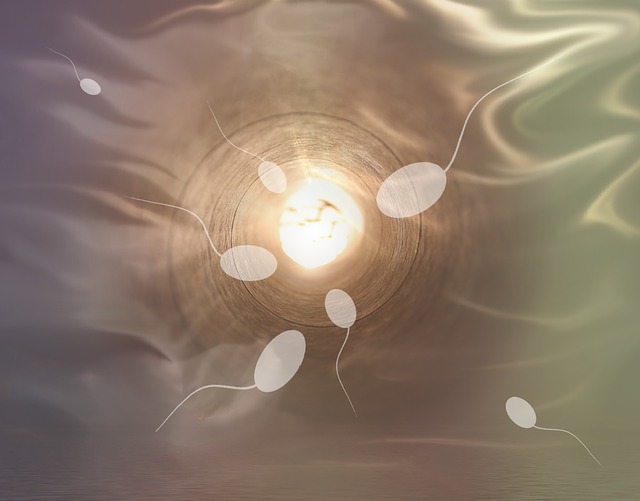
Steve Jobs once said: “I have great respect for incremental improvement, and I have done that sort of things in my life, but I have always been attracted to the more revolutionary changes. I don’t know why. Because they are harder, and they are more stressful emotionally, and you usually go through a period where everybody tells you that you have completely failed.”
When in comes to infertility issues, “incremental improvement” is usually not an option. Pregnancy is simply “all or none”. During festive seasons, young childless couples usually get questions from their relatives on when they are going to take on the responsibility of parenthood. – it is hard to avoid that “headline” perception of failure.
The other giant in the tech world, Bill Gates also said: “Headlines, in a way, are what mislead you because bad news is a headline, and gradual improvement is not”.
In reality, most of us may not achieve that “revolutionary” change and accept “incremental improvement” to achieve our goals. When the pressure is mounting, the emotional stress can only have negative impact on the gonads.
In the past, I often advise my male patients who are facing fertility problems to avoid focusing on the bad news and trying their best to work on gradual improvement. With the focus set, the eventual success is often within reach. This is exactly the topic we are discussing for Nazri, who is dreading facing the family during Raya, when faced with childlessness.
Dear Dr G,
My name is Nazri and I am 29 years old. My wife, who is 28 years old, and I have been trying for a baby since we were married three years ago.
Of course, we are both anxious as there is no positive outcome.
We both understand that the miracle of childbirth takes time. Sadly, in the last few Hari Raya, the well-meaning uncles and aunties have put tremendous amount of burden on us, when the inevitable questions about about parenthood were raised.
Needless to say, we have been dreading the Raya and have seen a doctor. The tests were completely normal for my wife but sadly my sperm count revealed some “shortcoming” (No pun intended!)
The doctor said I have oligospermia, which is apparently low sperm count. Can you please tell me the causes of low sperm counts?
From your previous responses to other readers, I gathered measures to decrease the temperature in the testicles would enhance sperm productions. I am also keen to know whether any food can help me to increase sperm production.
I understand this is the numbers name and will follow you advice so that I can make the mark. I know it might be too late for this Raya, but I wish the name can gradually improve and we can balik kampung with a baby next year.
Regards,
Nazri.
About one in every 20 men is affected by decreased fertility, and low sperm counts is a common source of such “shortcoming”.
Oligospermia simply means semen with low concentration of sperms. Often times, the decrease in number is also associated with poor morphology and motility, a condition known as OAT syndrome (Oligo-Astheno-Teratospermia)
The “goal posts” for this “numbers game” have shifted in the last few years. For many decades, the low counts were defined as concentrations less than 20 millions sperms/ml of ejaculate. The World Health Organisation had reassessed the criteria and established a lower reference point of 15 millions sperms/ml, consistent with the 5th percentile of ejaculates for normal men. I guess this is the sign of the time.
The severity of oligospermia can also be further classified as mild, moderate and severe, ranging from 10 to 20 millions, 5 to 10 millions and less than 5 millions, respectively. The severity of oligospermia helps clinicians to determine the mode of treatment, varied from lifestyle changes to test tube babies.
Although the sperm counts can fluctuate, and oligospermia can be a temporary setback, the causes of low sperm counts can be due to genetic conditions, age, previous mumps infections, sexually transmitted infections, or ejaculatory ducts obstruction. One of the most reversible causes of oligispermia is varicocele. This can affect up to 15% of sub-fertile men, and surgical corrections have been shown to improve the parameters accordingly.
What one eats has also been shown to have an impact on the sperm quality; hence the choices of food play a significant part in the ability to conceive. Naturally a balanced diet, including less meat, plenty of wholegrain, lean proteins, more fruit and vegetables, is encouraged.
Although the scientific evidence of vitamins and minerals helping conception is not robust, incorporating some of the nutrients have positive impact on those gametes. These include zinc and selenium, which may be deficient in sub-fertile men. Sources of such nutrients are in lean beef, baked beans, nuts and eggs.
The possible link of poor sperm motility to Vitamin D deficiency was also demonstrated. Oily fish, breakfast cereals and plenty of sunlight expose can enhance the absorption of Vitamin D, which may be crucial for healthier sperms. Folate-rich food such as broccoli, spinach and potatoes, can have the positive impact on this numbers game.
Many scientists also believe antioxidants may improve the quality of sperms by decreasing the free radicals which destroy cells. Hence, Vitamin A, C and E and a wide range of fruits and vegetables, certainly can protect those hardworking cells in the scrotum.
An American author and renowned thinker, Arnold H Glasgow once said: “Improvement begins with I”. In the “journey” of male fertility, the first step is often acknowledgement. A healthy lifestyle can ensure improvement in spermatogenesis and a lifetime healthy path in fatherhood.
Source: The Star
